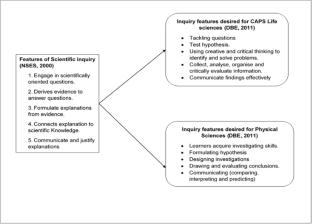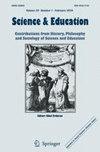The ability to do inquiry does not necessarily translate to understandings about scientific inquiry or the processes by which scientific knowledge is generated. The study reported in this paper focuses on what students know about scientific inquiry and what impact school science may have on this knowledge. We investigated grade 12 physical and life sciences students’ understandings about eight core aspects of the nature of scientific inquiry (NOSI) at a diversity of high schools in South Africa. Data were collected in two phases. In phase 1, the Views About Scientific Inquiry (VASI) questionnaire was administered to 203 grade 12 students from six schools across different socio-economic spectra (township, former model c and independent schools). Phase 2 constituted follow-up semi-structured interviews with 20% of the questionnaire respondents (n = 41). The findings revealed that grade 12 students held mostly naïve and mixed understandings about the NOSI. Though observed differences indicated that students at elite independent schools held more informed views than students at suburban and township schools, chi-square test of association (X2) for different school types showed a statistically significant difference in students’ understandings only for one NOSI aspect. This finding was regarded as being insignificant to make claims of differences in students’ NOSI understandings for the different school types. The implications of these findings and future directions for research are also discussed.



